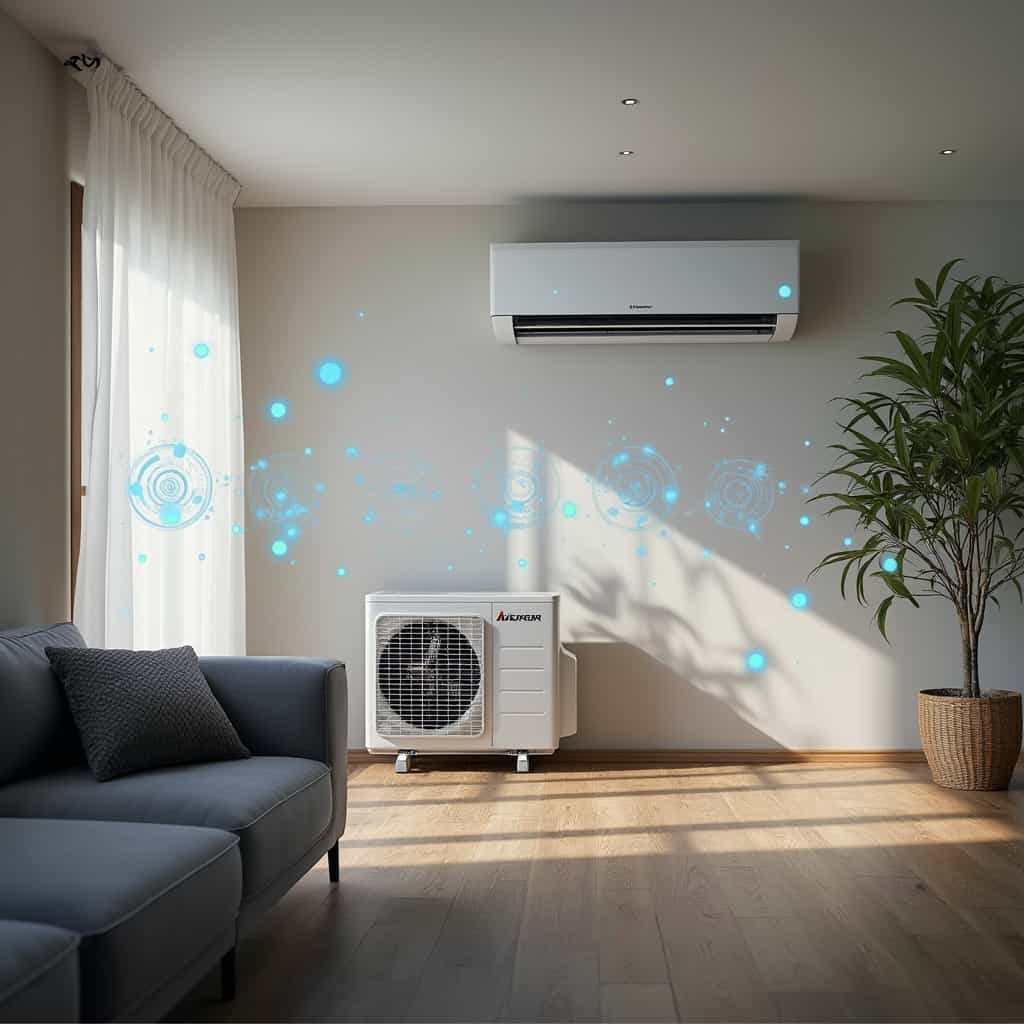The global air conditioning market is evolving rapidly as we approach 2025, driven by technological advancements and a growing emphasis on energy efficiency and sustainability. With the rise of smart home technology and increased consumer demand for appliances that not only cool but also contribute to an environmentally friendly lifestyle, the fixed air conditioner segment is bracing for transformative changes.
Manufacturers are now focusing on integrating cutting-edge technology into their air conditioning units. As a result, the market is being flooded with models boasting features like AI-driven climate control, improved energy efficiency, and environmentally friendly refrigerants. Notably, 2025 will see a significant leap in the use of R32 refrigerants, which offer a lower Global Warming Potential compared to traditional refrigerants, aligning with global efforts to reduce carbon footprints.
The development of ‘smart’ air conditioners is particularly noteworthy. Brands are increasingly equipping their units with Wi-Fi connectivity and compatibility with virtual assistants like Amazon Alexa and Google Assistant, allowing users more control over their home climates through voice commands or mobile apps. This trend towards connectivity reflects broader changes in consumer expectations and preferences, as highlighted by a recent Gartner study indicating a steady rise in smart home device integration.
When considering models to introduce or expand in 2025, brands such as Daikin, LG, and Mitsubishi Electric are leading the way. Daikin’s new ‘Atmospheric Control’ range promises to adaptively manage indoor climate with precision using feedback from both internal and external environmental sensors. LG is pushing the boundaries with its ‘Nano HVAC’ technology, which not only cools but purifies the air, delivering a dual function that many consumers find appealing.
On the economic side, understanding the market’s geography is crucial. In hotter regions such as the Middle East and South-East Asia, the demand for fixed air conditioners is persistently high. A report by Frost & Sullivan predicts significant market growth in these areas, driven by rising temperatures and urbanization. Conversely, Europe and North America, with their focus on combatting climate change, are showing increasing interest in energy-efficient solutions. Offers and subsidies provided by governments for eco-friendly units are strongly influencing sales trajectories.
Prominent models offering the best value for money include Mitsubishi’s MSZ-FH Series, known for its advanced inverter technology that provides energy savings without compromising performance. Carrier’s Infinity Series also stands out, featuring Greenspeed Intelligence for variable-speed operation. These models are not just about cooling; they emphasize low noise operation, a feature gaining traction among consumers who prioritize living space tranquility.
In terms of pricing, the competitive landscape is favorable for consumers. With brands jostling for attention in a crowded market environment, price reductions and promotional offers are expected throughout the year. For instance, Samsung’s BESPOKE vento range is predicted to see strategic price cuts, enhancing its appeal against similarly specified competitors.
The warranties associated with fixed air conditioners are becoming more consumer-friendly. Companies like Hitachi are beginning to offer extended warranties spanning up to ten years for certain parts, a move which reflects confidence in product durability while also catering to consumer desires for long-term investment protection.
Expert opinions highlight the importance of innovation convergence across appliance categories. Professor Jennifer Görg of the Berlin Institute for Innovative Technology asserts that ‘the integration of AI and energy-efficient mechanics in fixed air conditioners is not just a trend but the future of home comfort appliances.’ This sentiment is echoed by many industry analysts who see innovation in this segment as aligned closely with overarching Smart Home innovations.
Finally, while purchasing decisions are influenced by geographic and climatic factors, consumer education on sustainable practices is playing an increasingly important role. The drive towards purchasing energy-efficient appliances is not solely profit-driven but rather a reflection of an evolving consumer ethos centered on sustainability.
You may also like
Portable Air Conditioners: Eco-friendly technologies and smart integrations
The portable air conditioner (PAC) market is on the rise, adapting rapidly with technological advances and evolving consumer needs. As we approach 2025, new models promise enhanced efficiency, eco-friendly technologies, and smart integrations, offering consumers a plethora of choices across varying price points. This article explores upcoming innovations, market trends, top models, and regional purchasing behavior.
Pellet Stove: Innovative designs and regional preferences
As energy efficiency becomes a global priority, pellet stoves continue to gain popularity across various regions. 2025 introduces cutting-edge models equipped with advanced technologies, providing sustainable heating solutions with competitive pricing. This article delves into the latest market trends, innovative designs, and regional preferences, offering a comprehensive guide for consumers.
The Evolution of Gas Boilers: What to Expect in 2025 and Beyond
This article explores the latest advancements in gas boiler technology anticipated for 2025, including innovative models, market trends, and purchasing advice. We analyze market trends, geographical influences on sales, and offer insights into the best value models currently available.
Electric Boilers: Market Trends and Best Buys
Electric boilers have become a preferred choice for many due to their efficiency and eco-friendliness. This article explores the latest innovations, market trends, and offers buying suggestions for the most innovative and cost-effective electric boilers.
The Future of Home Heating: Innovative Heat Pumps Expected in 2025
As the world looks towards more sustainable energy solutions, heat pumps are emerging as a viable alternative for heating independent homes. This article explores the latest advancements, market trends, and some of the most cost-effective models available for 2025.
